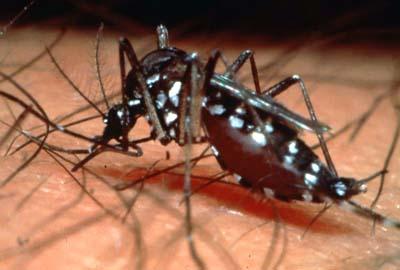You'd be surprised how many people don't want to save 1 in 18 people every year from this disease, if it violates their sense of First World entitlement. Yet anti-science activists remain against using nature to fight nature.
In a 2012 Los Angeles Times article (Frankenstein Was Not A GMO), I addressed the controversy about preventing Dengue in Florida, where a real estate agent had convinced an entire segment of the population she was an expert on insects and disease transmission and that entomologists were out to doom us all. It was a shocking lack of understanding about basic science, but rather than rehash all that I will condense it into three main points: male Aedes aegypti mosquitoes are harmless; the only way a female mosquito can acquire the dengue virus is to get it from a human with dengue; the proteins in those genetically modified mosquitoes are not expressed in humans, much less remotely toxic. Obviously keeping female mosquitoes from getting dengue is the solution and genetically modified males cause offspring to die before they can bite anyone and spread the disease. It's a good, well-tested solution.

Aedes aegypti, the 'Dengue' mosquito. 'Yellow Fever', if you are old school.
Another solution under trial is using wolbachia, a bacterium that lives inside insect cells and gets passed to future generations through the insect's eggs. The Aedes aegypti mosquitoes that transmit dengue do not get wolbachia naturally and it has been found that wolbachia is like a natural dengue vaccine for them - mosquitoes with wolbachia only get dengue partially, or not at all. If they can't get it, they can't spread it.
Developing countries in Asia love the idea of using modern science rather than brute force pesticides. The research was first done in the lab, and then in small communities in Australia and is now being done by Viet Nam's National Institute of Hygiene and Epidemiology on an island off the coast, where 3,500 people live under constant exposure to dengue. The researchers put the the mosquitoes into homes. Yes, residents want to get bit in their own homes in this case.
Is it perfect? No, but that is why studies get done. They found that while one strain of wolbachia blocks dengue 100 percent it doesn't survive well. They once had 90 percent of the mosquitoes infected but the rate has dropped in newer batches, which happened in the Australia experiments also. They are trying other Wolbachia strains that survive better but those are less effective against Dengue.
Is introducing wolbachia into a mosquito dangerous? Maybe if you are an LA Times reader or a member of Union of Concerned Scientists, but wolbachia is in millions of species already. The researchers are publishing all of their work, even the null results, in the interests of transparency.
That's good, we don't want worries that Franken-mosquitoes will save millions of lives without activists having the chance to say we are all doomed every time an experiment doesn't work.





Comments